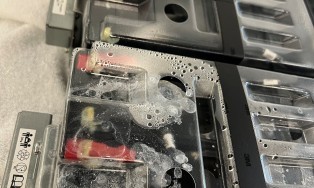Uninterruptible Power Supply (UPS) batteries are critical components that protect your equipment from power disruptions. Knowing when to replace UPS batteries can prevent unexpected downtime and equipment damage. This comprehensive guide covers UPS battery lifespan, warning signs of failure, environmental factors, and preventive maintenance strategies.
When Do My UPS Batteries Need Replacing? Expert Guide to Battery Lifespan & Replacement Signs
UPS Battery Lifespans at a Glance
Understanding the typical lifespan of different UPS battery types helps you plan for replacements and avoid unexpected failures.
- VRLA / lead-acid batteries: Typically last 3–5 years under optimal conditions.
- Lithium-ion batteries: Offer extended service life, typically lasting 8–10 years.
Important: Actual battery life varies significantly based on usage patterns, operating temperature, humidity levels, and maintenance practices. Many UPS systems require battery attention earlier than expected to maintain optimal performance and reliability.
6 Clear Signs Your UPS Batteries Need Replacing Immediately
Catching these warning signs early can prevent costly downtime and equipment damage:
- Reduced runtime or backup capacity: Noticeably shorter hold time under load compared to historical performance indicates battery degradation.
- Visible swelling or bulging: Physical deformation of battery casings signals internal chemical failure and represents a serious safety hazard.
- Leaking electrolyte, corrosion, or residue: Any fluid leakage, terminal corrosion, or residue requires immediate replacement to prevent further system damage.
- Fault indicators or system alarms: UPS diagnostic warnings, error messages, or warning lights reporting low capacity or battery faults.
- Overheating or unusual odors: Excessive heat generation or burning/metallic smells indicate internal faults requiring urgent replacement.
- Inconsistent performance or random shutdowns: Failures to transfer to battery power during outages or unexpected shutdowns mean the battery cannot reliably supply emergency power.
How Environmental Conditions Affect UPS Battery Life
Operating environment plays a crucial role in determining battery longevity and performance:
- Temperature: Higher ambient temperatures accelerate chemical degradation and reduce overall capacity. Conversely, low temperatures impair performance and charging efficiency. Ideal operating temperature is 20-25°C (68-77°F).
- Humidity: Excess moisture promotes terminal corrosion and shortens battery life, especially for VRLA and SLA battery types.
- Battery chemistry considerations: Lithium-ion batteries tolerate a wider temperature range, offer higher energy density, and provide longer service life compared to traditional lead-acid options, which remain cost-effective for certain applications.
Match your battery type to your specific operating environment and reliability requirements to balance upfront costs with long-term performance and total cost of ownership.
Preventive Maintenance: The Cost-Effective Strategy
Proactive battery management delivers significant operational and financial benefits:
- Scheduled inspections and performance testing: Identify early signs of degradation before they lead to system downtime.
- Planned battery replacement programs: Reduce the risk of unexpected failures and eliminate costly emergency service calls.
- Comprehensive lifecycle planning and monitoring: Optimize replacement schedules, reduce total cost of ownership, and ensure continuous protection.
A formal preventive maintenance program keeps your UPS systems operating reliably, maximizes battery service life, and minimizes operational disruptions.
Benefits of Routine UPS Servicing
- Protect critical operations from unexpected power outages and downtime
- Lower long-term operational costs through scheduled maintenance and timely replacements
- Safeguard valuable infrastructure from damage caused by failing or leaking batteries
- Ensure compliance with warranty requirements and insurance policies
- Maintain optimal system efficiency and energy performance
Don't Wait for Failure to Affect Your Business
Proactive battery assessment and replacement prevents costly disruptions to your operations.
Regular battery maintenance preserves system uptime, eliminates replacement surprises, and ensures your power protection performs reliably when it matters most.




